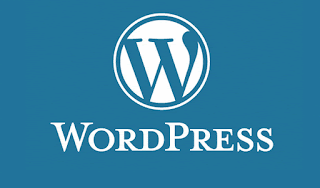What is a Content Management System?
A content management system (CMS) in simple terms, is a platform of sorts or a mechanism which permits you to create your content and publish it on a website. Let’s say that it is a coat hanger stand with the coat being your content.It is software that is installed on your host’s server. Your host provider will likely have a one click installation process to help you get your CMS installed. Once it is installed, you can log in to your site as the admin and add photos, text and other content. You can use the content you’ve added to create blog posts and other forms of content like a product page or display a work portfolio on your website.
A CMS is way more than just a means to an end, you can install a theme which is a modified template to suit the specific niche and purpose of your site. With the template added, you can customize the appearance of your site. You can add plugins to add function to your site, for example a social sharing plugin to help spread the word about your site via social networks.
All of this and more can be accomplished with a Content Management System.
Which CMS is best for you?
An overwhelming majority of websites use WordPress. The other two options that lag way behind in comparison to WordPress (certainly in popularity) are Joomla and Drupal.WordPress
The ideal option for someone who’s creating his or her first website. It has considerable scalability and works well with low and medium traffic websites. We receive 1.5 million views every month and we run WordPress, so that gives you an idea of what medium traffic constitutes if you were wondering. Even large websites such as TIME Magazine, CNN, TED, Techcrunch, NBC and others use WordPress to server millions of pageviews each day.WordPress has a great number of points that can be made in favor of its use.
- Easy To Install: Most hosting services have one click installation options for WordPress given the number of people who use it.
- Strong Community & Open Source: It is free and used by a lot of people. There are a plethora of free themes and plugins that you can leverage for your site. Apart from the freebies, premium themes and plugins are cheap and come with excellent support services from their providers. If you ever have a doubt or a problem a simple Google search can answer your query. If fact, I’ll go so far as to say you’ll find the answer to your doubts answered by the first three results of a Google search. A strong community will aid in your WordPress initiation process should you ever encounter any hiccups. And you can always drop your comments here either Aigars or me will be sure to respond to the at the earliest opportunity.
- Ideal For Non tech savvy online entrepreneurs: Most of the products associated with WordPress, such as themes and plugins are fairly straightforward and intuitive to use. Installing a Content Management System like WordPress is only the first step of the process, there is much more to website creation beyond that. Like WordPress which is easy to install and configure, the tools that you’ll require to make your website whole are easy to handle.
- One drawback of WordPress, it may become unwieldy if your site grows far too large and receives an enormous amount of daily traffic. The cost of your hosting goes up. But we are talking about traffic in the order of millions here and it isn’t something you should let bother you for now.
- Another potential problem is the quality of free plugins and themes. While most are good and have fairly high security standards, you’d should be wary of unknown third party plugins. WordPress is a secure platform out the box, but adding third party software while exercising poor judgement is a bad idea. That being said security vulnerabilities are generally fixed as soon as they are detected. Need help









